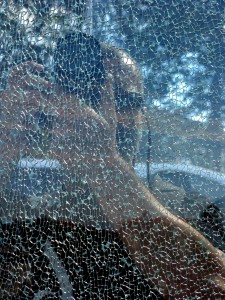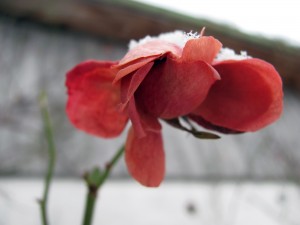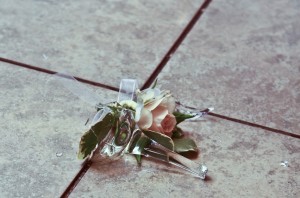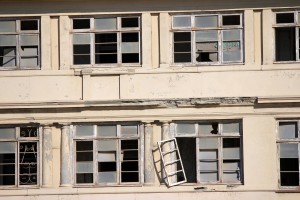Inspiration:

Take a look around and find one thing that is not to your liking – something that is cluttered, broken, dirty or less than what you want it to be. Let your gaze remain there until you can find a way to enjoy or appreciate that flawed thing or what it means to you.
“Not Necessarily Flaws”
Perhaps what we all need to be is not flawless, but rather carried by a love that recognizes how our flaws can be part of a larger wholeness. Our Universalist heritage guides us toward an understanding of God as a kind of Love that can find the wholeness in our cracked selves. Our humanist heritage points us toward an understanding of community as a place where we create a wholeness that is greater than any one member of the group. And through all our different theologies we carry a belief that our differences are gifts, not failings. Francis David said back in the 1500s that “We need not think alike to love alike.” Modern day UUs are likely to add that we also need not look alike, sound alike, have the same abilities or the same backgrounds in order to love alike.
A quote from Albert Einstein has been making its way around Facebook lately: “Everybody is a genius. But if you judge a fish by its ability to climb a tree, it will live its whole life believing it is stupid.” A fish trying to climb a tree looks pretty darn broken, and a squirrel in the ocean doesn’t look so hot either. Our society can be quick to tell people with disabilities, or the elderly, or children, or immigrants or gay or lesbian folks, or people with mental or physical illnesses, or people living in poverty or in prison that they are “less than,” that they are not fully whole, fully human.
But the gift of the Beloved Community is to see each person for the genius they are, for the wholeness that they are. What we have to offer as Unitarian Universalists is neither the ability to become flawless nor the ability to cure others of their flaws. What we have instead, at least in our best moments, is the holy capacity to appreciate the field of flowers that all of us cracked pots have created.
by Rev. Dr. Lynn Ungar, Minister for Lifespan Learning, Church of the Larger Fellowship
TO READ MORE
Join us at 7 pm ET tonight for our service of Reflection & Connection: http://www.livestream.com/questformeaning



 Do not be too hard, lest you be broken; do not be too soft,
Do not be too hard, lest you be broken; do not be too soft, Spirit of Wholeness, guard my heart from both complacency and contempt. Help me to expect the best from myself and others.
Spirit of Wholeness, guard my heart from both complacency and contempt. Help me to expect the best from myself and others.